|
One of the most well-known and respected figures of the Arabian world, Antarah ibn Shaddad was literally considered one of the seven prolific poets of pre-Islamic era. Antarah was born in 525 AD in the Saudi Arabian region of Najd to parents Shaddād al-ʿAbsī and Zabiba. His father Shaddad al-Absi was a great warrior of the tribe of Banu Abs, his mother Zabiba was an Ethiopian slave of his father Shaddad al-Absi. Zabiba was said to be a princess captured when Shaddad and his tribe raided Ethiopia. Antara was initially rejected by his father because his mother was in servitude, in turn Antara grew up as a slave; because of his dark skin he was considered a “Black Crow.” Antara first began to improve his reputation by his displaying his excellent skills as a poet and a soldier. Antara was in love with a woman named Ablah who was said to be his cousin, his only issue was a slave could not marry. Because of his skill in battle his father Shaddad offered him a position as within the warrior class of the Abs, Antara replied to his father “the slave doesn’t know how to invade or how to defend, but is only good for milking goats and serving his masters”. His father replied to him: “Defend your tribe, O ʿAntar, and you are free”. With the promise of freedom Antara joined the warriors and led them to battle against the invaders. He gained his freedom then looked to make Ablah his wife, but before he could make her his bride he would have to face a number of challenges, his most famous challenge was capturing a special camel from the northern Arab kingdom of the Lakhmids. Antarah was also famous for participating in a battle between Abs and Dhubyans called the Great War of Dahis and Ghabra. Antara is said to have died in a battle against the tribe of Tai around 608 AD. Following the death of Antarah his poetry was curated and he became known as one of the great Arabian poets; one of his poems was included within the Mu’allaqat. The Mu’allaqat is a group of seven extensive poems which are regarded the best poetry of the pre-Islamic era. The name Mu’allaqat means “The Hanging Poems” because the poems were literally hung on or in the Ka’ba of Mecca. Antarah’s poetry is renowned because of how detailed he is in his descriptions of events within his poems. The story of Antarah and Ablah became an epic poetic story said to be written by a poet named al-asma i. One of the seven clans of Bethlehem was named after Antarah called the Anatreh. The Russian composer Nikolai Rimsky-Korsakov based his Symphony Number: 2 after the legend of Antarah. The Arabic poem Antara was translated by the French painter Étienne Dine and was followed by other versions of the work. The story of Antarah even inspired Palestinian operas and became popular within the Western world. He faced adversity early in life but literally fought to change his life, the life of his mother and wife. Antarah ibn Shaddad, we proudly stand on your shoulders. J.A. Ward References:
https://en.wikipedia.org/wiki/Antarah_ibn_Shaddad https://www.poemhunter.com/antarah-antar-ibn-shaddad/biography/ https://en.wikipedia.org/wiki/Mu%27allaqat
0 Comments
Descendants of Eastern and Southern Africans, and more specifically the Bantu people of the Great Lakes region of Central and Southern Africa, the Siddi are a cultural group who inhabit the areas of India Pakistan and Sri Lanka. Our research tells us that some of the Siddi were brought to India by the Portuguese over five hundred years ago. Because of the enslavement of the Siddi by the Portuguese and Indians, modern Siddi are a mixture of African, Indian and Portuguese; genetic research suggests that the intermixing of the different cultural groups occurred over the last eight hundred years. The Siddi are dispersed throughout India and Western Asia and are known by many names, they are commonly associated with the title habshi which was the name of the African and Arab seas captains who is said to have delivered the Siddi to India. The first group of people to be considered Siddi are said to have arrived in India around 628 AD in the city of Bharuch, which was the administrative headquarters of the Bharuch District. The second group of Siddi are said to have been Zanjis soldiers in Muhammad bin Qasim’s Arab army. The last of the Siddi were the East African Bantu who were the slaves of the Portuguese. Because of slave trading the Siddi now populate many districts and states throughout India, Pakistan and Sri Lanka. The population of the Siddi that inhabit Gujarat are due to the Prince of Junagadh purchasing African slaves. The Siddi have been able to maintain some of their African culture and phenotype by rarely mixing with other cultural groups. Genetic studies have proven that all of the Siddi who inhabit India, Pakistan, Sri Lanka and other areas of Asia have at least a 25% genetic link to an African ancestor. Some of the Siddi have adapted to the customs and ways of living in India, Pakistan, Sri Lanka, and other places; many have adopted Hinduism, Christianity and Islam as their primary religions. Several stories exist about how the different groups of the Siddi came to populate Western and Central Asia, one thing we do know is the story of this group of people is largely hidden from our historical records or curriculums. We have come to learn that the African diaspora covers every continent and corner of this earth; we were taught that we have no history yet we keep finding more information that tells a different story. The story of the Siddi shows us once again how African people have been subjugated by many different groups of people outside of Africa. The continent and its people have endured much terror over the years, but as always, African people have found a way to endure, survive and thrive. The Siddi diaspora, we proudly stand on your shoulders. J.A. Ward. ,Abram Petrovich Gannibal was born between 1667 and 1669 in the city of Logon near the Mareb River. It is said the city of Logon was located in Eretria, information also exist that suggests Logon was located in Cameroon. Gannibal is said the have been the son of a Prince before he was kidnapped by enemies of a rival culture and taken to Turkey at the age of eight. He was kidnapped again and taken to Moscow, Russia where he would leave his mark on history. Gannibal was sold to the Russian Czar Peter the Great; he was so well-liked that the Czar allowed Gannibal to shadow him during his daily governmental affairs. Gannibal developed a love for math and engineering during his early years of school. His knowledge and gifts were used to construct the fortress town of Kronstadt which was also used as a naval port. Gannibal studied engineering in Paris, France at the request of Peter the Great. He would live in France for six years, during his time he joined the French army. He became a commander and engineer lieutenant in the French army during the Spanish war of the Czar’s Guard. In 1725, Peter the Great died and the royal adviser Prince Menshikov immediately banished Gannibal into exile in Siberia. While in exile he would build the fortress of Selenchinsk before he escaped from exile, he was captured shortly after and returned to exile. In 1741, Peter the Great’s daughter Empress Catherine would restore Gannibal to his positions of prominence within the Russian army and society. He would soon be named a General in the Russian army and was able to use his knowledge of engineering to help secure the boundary between Russia and Sweden. Gannibal was selected as the Commandant of the city of Reval, he was also promoted to be a major in the Tomesk stronghold. Empress Catherine also awarded Gannibal with multiple engineering projects that would help further build the Russian Empire. Gannibal also received an estate near St. Petersburg, Russia where he would live after he retired from his service to Russia. Gannibal would meet and illegally marry Christina Regina Von Shoberg, the couple would have eleven children one who was Ivan Gannibal the Russian Naval hero. Gannibal is also the great-grandfather of the father of modern Russian literature Alexander Pushkin. Little is known about the Gannibal family legacy, what we do know is a man was kidnapped from his land at the age of eight and was able to make a great impact on Russian life and culture for generations to come. Abram Gannibal was sold to Peter the Great as if he was a pet; they did not know Gannibal would be the one of the reasons Russian life would improve. Abram Petrovich Gannibal, we proudly stand on your shoulders. J.A. Ward Born in 240 CE in in the Roman province of Palmyra, Syria was a girl named Julia Aurelia Zenobia who would soon challenge the Roman Empire for control of the province. It is said that she is considered a Roman citizen because her father’s family was granted Roman citizenship during the reign of Marcus Aurelius. Zenobia was a very smart young girl; she was educated in Greek and Latin studies, and also found time to become fluent in the Egyptian and Aramaic languages. She was often quoted claiming to have ancestry connected to Cleopatra VII of Egypt. She was placed in charge of watching her family’s sheep as a girl, often going on long expeditions and also hunting. These skills would prove to be an asset to Zenobia later in life. Along with being a skilled hunter, she could outlast any man on an expedition by foot, and out drink any man. Zenobia was regarded as the most beautiful woman of her time. She is described as a woman of a dark hue with teeth like pearls and eyes that could entice any man. Zenobia married Lucius Septimus Odaenthus, a Roman governor of Syria in 258 CE. Although she was a married woman she was very strict about maintaining her sexual reputation. She was only known to lie with her husband only to produce a child; records show that the couple produced one son from their union. Being that Zenobia was Odaenthus’ second wife, her son was not the immediate heir to rue the city of Palmyra. Odaenthus was the ruler of the Palmyra which was a very affluent region because of its position on the Silk Road which was an important trading center. A group of people called the Sassanid (a pre-Islamic Persian empire, established in 224 CE by Ardeshir I, son of Papak, descendant of Sasan) choose to block the trade route in the year 227 CE. This blocking of the trade route caused the Roman Emperor Valerian to take up arms against the Sassanid’s in 260 CE, but was defeated. Odaenthus waged war against the Sassanid’s and drove them back to their lands. Because of his victory Odaenthus was made the Governor of the Eastern Roman Empire, he next defeated Gallienius in battle and became the all-powerful ruler of Syria. Around 267 CE Odaenthus and his son were killed by one of his nephews leaving a hunting trip. The death of Odaenthus meant that Zenobia’s son Vaballathus was the rightful ruler of Palmyra but was too young to rule; Zenobia made herself regent and ruled in place of her son. She would find the brightest minds in the land to become a part of her court; her intent was to make sure she provided the best influences for her region. Initially she worked to maintain the policies of her husband, but as she noticed Rome was weakening its hold on Egypt she conquered the city. The Roman army briefly drove Zenobia’s forces out of Egypt and pursued them into the borders of Northern Syria. That would prove to be a bad move by the Romans, they were attacked by Zenobia’s army and defeated. Zenobia now ruled Egypt and gained the regions of Levant and Asia Minor. As Zenobia built her empire she was unnoticed by the Roman Emperor, she used brilliant tactics to move below the radar for a while. One move she made was to mint coins with her son’s face on one side on Aurelian the Roman Emperor on the other. As she praised the Roman Emperor is public she plotted to gain control of the Empire behind closed doors. During her conquest, Zenobia was able to build an empire whose borders reached from Iraq to Egypt. As Aurelian became more comfortable with his position as Emperor he made it a priority to overthrow Zenobia and her Eastern empire. 267 CE Aurelian and his army attacked Zenobia’s empire. As his army swept through the land cities that once aligned themselves with Zenobia surrendered to Aurelian and his army. Aurelian and Zenobia’s armies met at the city of Daphne, unfortunately Zenobia’s army was dominated by the Roman forces. Zenobia would flee to the city of Emesa where the two armies would meet again, once more Rome was victorious. Zenobia was able to escape again and returned to the city of Palmyra but was held under siege by Aurelian. Zenobia and her son were able to slip out of Palmyra without notice; once Aurelian entered the city of Palmyra he found Zenobia was gone. He sent troops to pursue her; she was spotted by his troops crossing the Euphrates River, captured and brought to Rome. The information about what happened to her after she was captured is unclear, but we do know that a beautiful Queen of the East gained control of a large portion of the Roman Empire. Zenobia, warrior queen of the East, we proudly stand on your shoulders. J.A. Ward. On July 2, 1878 Eugene Bernard Acham was born in San Fernando, Trinidad to parents Chen Guangquan and Mary Longchallon. His father fled to Trinidad from China where he met Chen’s mother Mary. According to author J.A. Rodgers, Chen is of African – Chinese – Spanish heritage. He received his education from St. Mary’s College, Port of Spain, Trinidad. He then received his law degree in London, England and was admitted to the London Bar Association. He used his education to help him build a successful law practice in Trinidad. In 1899 Chen married Agatha Alphonsin Ganteaume, a black woman of French Creole descent. Due to Chen’s success as a lawyer he was able to build wealth; but he soon lost his wealth due to financial troubles. He fled Trinidad for Peking, China to become the legal advisor to the Ministry of Communications. Eugene Acham changed his last name to Chen when he fled Trinidad for China. Chen was able to start three newspapers, The Peking Gazette, The Shanghai Gazette and People’s Tribune. His next step was to become the legal advisor to Sun Yat Sen and the Chinese Foreign Minister. He served as legal advisor until the minister’s death in 1925. From 1926 – 1934 he served as Foreign Minister for three Chinese governments, as well as led a boycott against British commercial interest. The result of the boycott led to the signing of the Chen-O’Malley Agreement, which allowed Hong Kong to become Chinese property again. Chen was later arrested for his newspaper articles denouncing the German, French and British control over China. Because he was considered a British citizen, he was released from jail. Chen is regarded is the brains, and soul of the Chinese revolution. Chen was now living on Moscow, Russia and initially was welcomed to live. He soon began working with Russians in build a Chinese Communist party, but was stopped and exiled. He returned to Hong Kong in 1944 where he remarried and settled. He remained at the forefront of the fight for the freedom and equality of his people until his death. Mr. Eugene Chen, we proudly stand on your shoulders. J.A. Ward. Click below to view the Eugene Chen video Malik Ambar was born in 1546 in Ethiopia, where he was subsequently sold to an Arab slave merchant by his parents. He worked for the merchant in Baghdad before he was sold to a merchant in Deccan. He was sold again to a prominent noble at the courts of the Nizam Shahs of Ahmednagar. (Ahmednagar is a city of Ahmednagar District in the state of Maharashtra, India) In 1600 the Mughals overthrew the ruling powers of Ahmendnagar but Amber was able to escape free. He led a small following and took control of the countryside. Jahangir of the Mughals’ forces held siege around the area where Ambar and his following resided. War was declared between Amber and the Mughal’s. As the power of Ambar grew, the power of the Mughals steadily declined. Ambar trained his followers in the art of Guerrilla warfare. Using this strategy he captured the young Scion of the Ahmendnagar dynasty, Mustaza II, grandson of Nizam Shah. He married him to his own daughter, and placed Mustaza II on the throne of Ahmendnagar, naming himself regent of the State. With power in hand Amber launched great architectural projects, constructing or strengthening fortifications at vulnerable spots. He had a Church built for the Christians, raised monuments at Khirki, and gave the town a sophisticated water supply system. Also seven years after appointing Mustaza II to ruler, he disposed of him and became ruler himself. In a long bitter war with the Mughals neither Ambar nor Jahangir could gain the upper hand on each other. Jahangir also used literature as a means to defeat Ambar. In his writing’s he was often found calling Ambar a “black-faced wretch”. One clash between the two forces found Ambar’s force of 10,000 defeating Jahangir’s force of 40,000. He also seized the ships of the Mughals and forced the city of Bijapur to pay him tribute. Golconda, a city whose name was once synonymous all over the world with wealth, also met Ambar’s wrath. In 1628 the English arrived in India with intentions of using the Land as a base for commerce, but Ambar rejected their advance and also rejected their bribery. The English also tried to oust Ambar by conspiracy; he retaliated by seizing one of their caravans worth 200,000 Rupees. The English in turn took one of his ships and demanded their money; Ambar reminded them that they had one of his ships, so there was no deal. Later in 1628, Ambar faced off with Abdullah one of Jahangir’s allies. Armed with cannons, rockets, and Elephants, Ambar defeated Abdullah giving Jahangir a feeling of hopelessness. The tide turned when Ambar died at the age of eighty, giving Jahangir the upper hand in the battle. Despite being placed into slavery as a child Ambar became the first general, politician and financier of his time. Under his rule his country thrived, it was immaculately cultivated and the citizens were very happy. Ambar founded the city of Aurangabad and beautified it with a palace, gardens, and bodies of water lined with stone. Indian Historian Motamid Khan spoke these words about Ambar; “This Ambar was a slave, but an able man. In warfare, in command, in sound judgment, in administration, he had no rival or equal. He well understood that predatory warfare which in the language of the Deccan is called bargi-giru. He kept down the turbulent tribes and maintained his exalted position to the end of his life and closed his career in honor. History records no other instance of an Abyssinian slave at such eminence.” Malik Ambar we stand on your shoulders. J.A. Ward. Click below to view the Malik Ambar video Alexander Pushkin was born June 6, 1799 in Moscow, Russia to a family of Russian nobility. His great-grandfather on his mother’s side-Abram Gannibal- was brought from Africa as a slave and rose to become an aristocrat. At the age of fifteen Pushkin published his first poem, and upon graduating from grade school he gained notoriety for his literary talents. His graduating class was the first graduating class of the Imperial Lyceum in Tsarskoe Selo. In 1820 he published his first long poem titled Ruslan and Lyudmila a poem that sparked much controversy. He became a mainstay within the literary scene of St. Petersburg, Russia; his stance on social reform made him an opponent of the Russian Government. In 1820 he was transferred from St. Petersburg to the Caucasus, then to Crimea, then Kamenka, and Chisinau, while in Chisinau he committed himself to freemasonry. Pushkin aligned himself with a secret organization called Filiki Eteria; the group was created to overthrow the Ottoman rule of Greece. When war was waged against the Ottomans, Pushkin kept a diary of the events. Pushkin left Chisinau in 1823 but not before he wrote two romantic poems that brought him national acclaim. The two poems were titled, The Captive of the Caucasus and The Fountain of Bakhchisaray. In 1823 while in Odessa Pushkin was again exiled by the government until 1826, while in exile he wrote love poems to Elizaveta Vorontsova the wife of the General-Governor. Pushkin was given permission to visit Tsar Nicholas to petition for his release from exile, he gained his freedom but was under strict government control because of previous poems. He was not able to publish his poems unless he was given permission by the government. Pushkin also wrote his most famous play during exile, Boris Godunov but could not publish it until five years later because he was exiled. That play would not be staged until 2007. In 1828 Pushkin met a 16 year old beauty named Natalya Goncharova he offered her a marriage proposal in 1830, she accepted it under the condition that he would not get persecuted by the government. They were officially married on February 18, 1831. Pushkin would once again begin building a legendary reputation as a writer; he is considered the greatest Russian poet and the founder of modern Russian Literature. His most famous work of art is the verse novel Eugene Onegin; he composed other masterpieces such as The Bronze Horseman, The Stone Guest, Don Juan and Mozart and Salieri. Mozart and Salieri was the inspiration behind Peter Shaffer’s Amadeus. Pushkin also had an influence on the Russian operas; the composer Glinkas created the pieces Ruslan and Lyudmila because of Pushkin. Tchaikovsky created the opera Eugene Onegin after Pushkin’s verse novel; he also created the opera The Queen of Spades because of Pushkin. Other operas were influenced by Pushkin such as Boris Godunov, Rusalka, The Stone Guest, Mozart and Salieri, Tale of Tsar Saltan, The Golden Cockerel, Prisoner of the Caucasus and many more. Ballets, cantatas and songs were also created because of the literary works Pushkin created, he is also considered to be the central figure of Russian romantic literature. Pushkin’s writings combined all the contemporaneous elements needed to create Russian literature. Pushkin later created Russian magazine culture, and he also inspired the genre of Russian folk tales. Pushkin died in 1837 as a result of a fatal wound while dueling with the man accused of sleeping with his wife. Upon his death Pushkin managed to restructure and create new elements of Russian literature. His vision and his writing styles kept him in trouble with the Russian government but inspired a whole country and generations to come. Russian literature and literature across the world owes a debt of gratitude to Pushkin for his influence on writings, music and operas. Mr. Alexander Sergeyevich Pushkin; we stand on your shoulders. J.A. Ward. Click below to view Alexander Pushkin video |
Details
Categories
All
Click Here to join our mailing list
|
Contact Us: |
Connect With Us |
Site powered by PIT Web Design

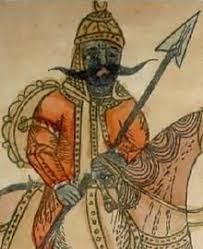

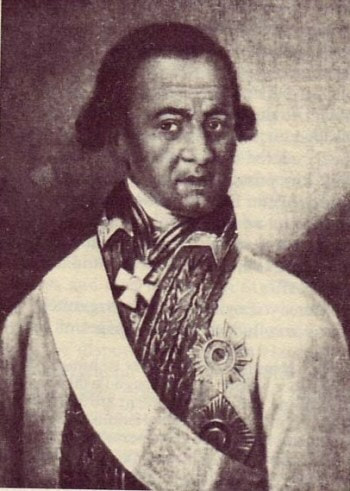
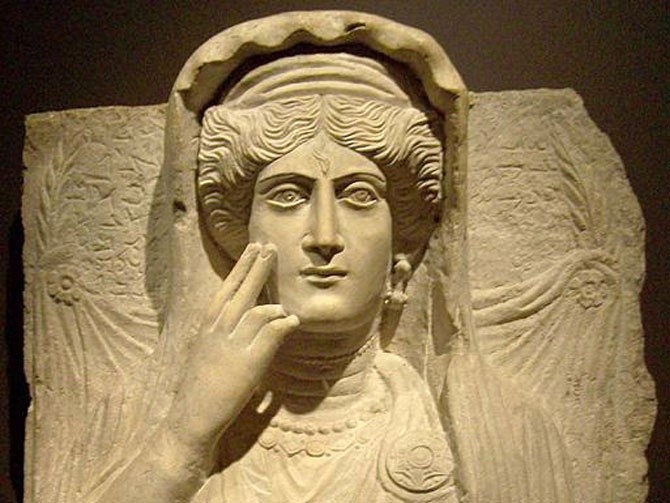
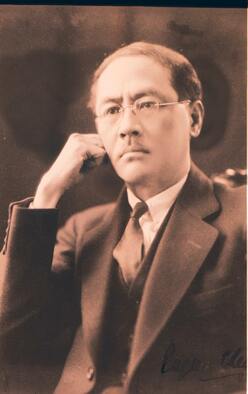
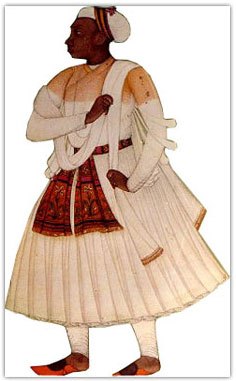
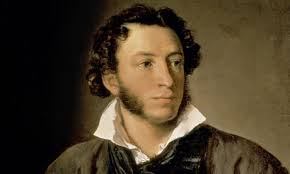
 RSS Feed
RSS Feed



